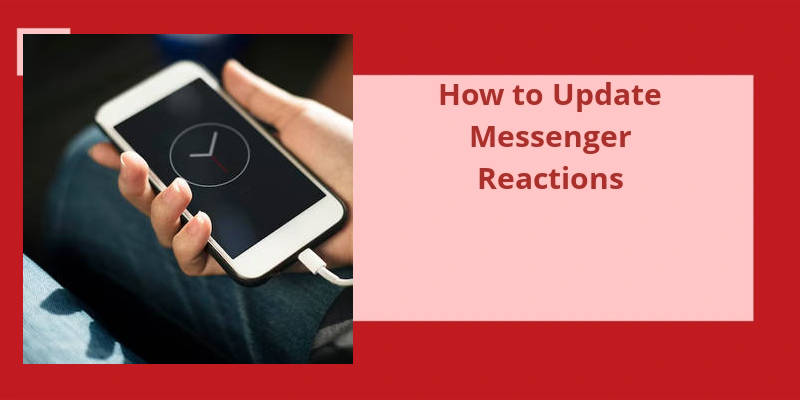While some may argue that not responding to a text message is simply a result of busyness or forgetfulness, others firmly believe that it’s indeed rude to leave someone hanging, especially if they reached out to you with genuine intentions. Of course, there are exceptions to this notion, such as when the message in question is offensive or abusive, in which case it may be best to simply ignore it. However, in most circumstances, failing to reply to someone within a reasonable timeframe, say a few hours, can be seen as a display of disregard for their feelings or a lack of consideration for their time. In an age where instant communication has become a norm, timely responses have come to be expected, and the absence of a reply can leave the sender wondering whether their message has been overlooked or dismissed entirely.
Should You Ignore Text Messages?
Should you ignore text messages? Although it’s often frowned upon to ignore text messages because it’s rude and can be interpreted as a disdain for the other person, sometimes people need to realize that I don’t want it be that Im required to respond to people all the time.
While it may seem disrespectful at first glance, there are circumstances where not replying to a message isn’t only understandable but also necessary for personal well-being. Life can get overwhelming at times, and taking a moment to disconnect from the digital world and focus on oneself can be crucial for mental health.
Additionally, not all messages require an immediate response. Some may be trivial or irrelevant to our lives, and replying to every single one can be a drain on time and energy. Prioritizing our own needs and setting boundaries is important to maintain a healthy work-life balance.
Furthermore, constantly being available to respond to messages can create unrealistic expectations for others. By occasionally not replying, we can assert our autonomy and remind others that our time and attention are valuable resources.
Lastly, it’s worth remembering that communication should be a two-way street. If someone consistently fails to respond to your messages, it’s natural to assume that they may not be interested in continuing the conversation. Ignoring a message can sometimes send a clear signal about our own disinterest or unavailability, saving both parties from unnecessary discomfort or misunderstandings.
While it’s generally polite to reply to messages, it’s important to recognize that the expectation of constant response can be overwhelming. Ignoring a message may not always be disrespectful; instead, it can be an act of self-care, setting boundaries, and asserting our autonomy in the digital realm. However, it’s essential to strike a balance and not make a habit of disregarding others attempts at communication.
The Role of Social Norms and Expectations in Responding to Text Messages
Social norms and expectations play a significant role in how we respond to text messages. It’s generally considered polite and respectful to reply to a message in a timely manner, especially if it requires a response. Ignoring or not replying to a message can be perceived as dismissive or rude, depending on the context and relationship between the individuals involved.
In the era of instant communication, the expectation for quick responses has become ingrained in our interactions. While it may not be outright disrespectful to not respond to a text, it’s generally considered impolite to leave someone hanging for an extended period of time. However, there are situations where ignoring certain messages, particularly those of an abusive nature, is a warranted course of action. In this article, we will delve deeper into the topic of timely text replies and explore the potential repercussions of neglecting them.
Is It Disrespectful to Not Respond to a Text?
Many people debate whether it’s disrespectful to not respond to a text message. The answer to this question can vary depending on various factors. In general, ignoring a message can be seen as rude or dismissive, especially if the sender expects a prompt response. However, there are situations where not replying is acceptable and even necessary.
One factor to consider is the nature of the message. If the text is abusive or offensive, it’s best to ignore it. Responding to such messages may only escalate the situation or provide the sender with the attention they seek. In cases like these, it’s better to prioritize ones well-being and not engage in a harmful conversation.
On the other hand, if the message is from a friend, family member, or colleague, it’s generally considered polite to respond within a reasonable timeframe, typically within a few hours. Delaying or ignoring messages from loved ones can cause unnecessary worry or misunderstanding. Keeping the lines of communication open and acknowledging the message shows respect and consideration for the other persons time and effort.
In our fast-paced, hyper-connected world, it’s easy to feel a pang of unease when someone fails to respond to our messages. We’ve become so accustomed to instant communication that the absence of a timely reply can leave us questioning. However, it’s essential to remember that there are often valid explanations for silence, and it’s not always a reflection of disinterest or neglect.
Is It Normal for People to Not Respond?
Is it disrespectful to not reply to a message? This question has become increasingly relevant in a society that’s constantly connected. With smartphones always at our fingertips, it’s easy to assume that everyone should respond promptly. However, is it really normal for people to not respond?
While it may feel like a personal slight when someone doesn’t reply to a text or an email, we must remember that there are numerous valid reasons for this. People lead busy lives and may not have the time to respond immediately. They could be in the middle of an important task, or engaged in a face-to-face conversation that takes precedence over their digital interactions.
Furthermore, sometimes people need time to think about what they want to say before responding. It’s not uncommon for individuals to draft and revise their messages to ensure clarity and thoughtfulness. While it may lead to a delay in response, it demonstrates respect for the conversation and the person they’re communicating with.
In a world where constant communication is the norm, it’s essential to keep in mind that not every message requires an immediate response. It’s unrealistic to expect everyone to be available 24/7 or to prioritize digital communications over other aspects of their lives. Therefore, rather than jumping to conclusions or feeling disrespected, it’s important to be understanding and patient when someone doesn’t reply promptly.
The Etiquette of Responding to Messages in Different Communication Platforms (e.g. Text, Email, Social Media)
The etiquette of responding to messages varies across different communication platforms. In text messaging, email, and social media, it’s generally considered polite to reply to messages in a timely manner. Not responding can be seen as disrespectful or inconsiderate. However, the specific expectations of response times can vary depending on the nature of the platform and the relationship between the sender and recipient. It’s essential to be mindful of these nuances and to communicate effectively to avoid any misunderstandings or hurt feelings.
Source: I’ve a SERIOUS problem with replying back to people’s …
However, the idea of whether no response actually means yes or no is a bit more complex. While silence can indeed convey a variety of messages, it’s crucial to consider the context and the individuals involved to determine the true meaning behind the lack of response. In this article, we will delve deeper into this concept and explore the different factors that may influence the interpretation of no response.
Does No Response Mean Yes or No?
Others interpret this saying to mean that silence or lack of response can be an indirect way of saying “no.”. In this context, if someone asks a question or makes a request and receives no response, it can be assumed that the answer is a negative one. However, it’s important to consider the context and the relationship between the individuals involved.
Whether no response is disrespectful or not depends on various factors, such as cultural norms, the nature of the relationship, and the expectations set between the parties involved. In some cultures, not responding to a message is considered rude and disrespectful, as it’s seen as a lack of acknowledgement or consideration for the person reaching out.
It can leave the sender feeling ignored, unimportant, or dismissed. In this case, open and honest communication is vital to address any misunderstandings or hurt feelings that may arise.
On the other hand, in certain professional contexts or busy environments, not responding to every message immediately is more commonly accepted and understood. In these situations, individuals may prioritize their time and respond to messages selectively, focusing on tasks that require their immediate attention. It’s essential to establish clear communication expectations and boundaries to avoid any misinterpretations or hurt feelings.
It’s important to be mindful of our own communication habits and considerate of others feelings when deciding whether or not to reply to a message.
The Role of Non-Verbal Cues in Interpreting Silence as a Response
- Body language: Non-verbal cues such as facial expressions, gestures, and posture can provide valuable insights into how silence is being interpreted as a response.
- Eye contact: The way someone maintains or avoids eye contact can be a non-verbal cue that indicates their understanding or agreement with the silence as a response.
- Microexpressions: Brief facial expressions that occur during silence can reveal underlying emotions or thoughts that may not be explicitly expressed verbally.
- Physical movements: Actions like nodding, shaking the head, or leaning in can convey a variety of meanings when silence is perceived as a response.
- Tone of voice: The pitch, speed, and volume of someone’s voice, even in silence, can convey additional information about their interpretation of silence as a response.
- Context: The surrounding environment and situation can influence how silence is interpreted as a response, considering the non-verbal cues displayed and the relationship between communicators.
Conclusion
In today's fast-paced digital age, where connectivity is at our fingertips, the act of not replying to a message can be seen as disrespectful. While there may be instances where ignoring an abusive message is the best course of action, it’s generally considered impolite to leave someone waiting for a response without a valid reason. Prompt communication is fundamental to maintaining healthy social interactions and shows respect for the time and effort the sender put into reaching out. However, it’s important to balance expectations and understand that immediate replies may not always be possible. Ultimately, finding a middle ground where timely responses are prioritized without becoming overwhelmed by the constant need for instant communication is key.






